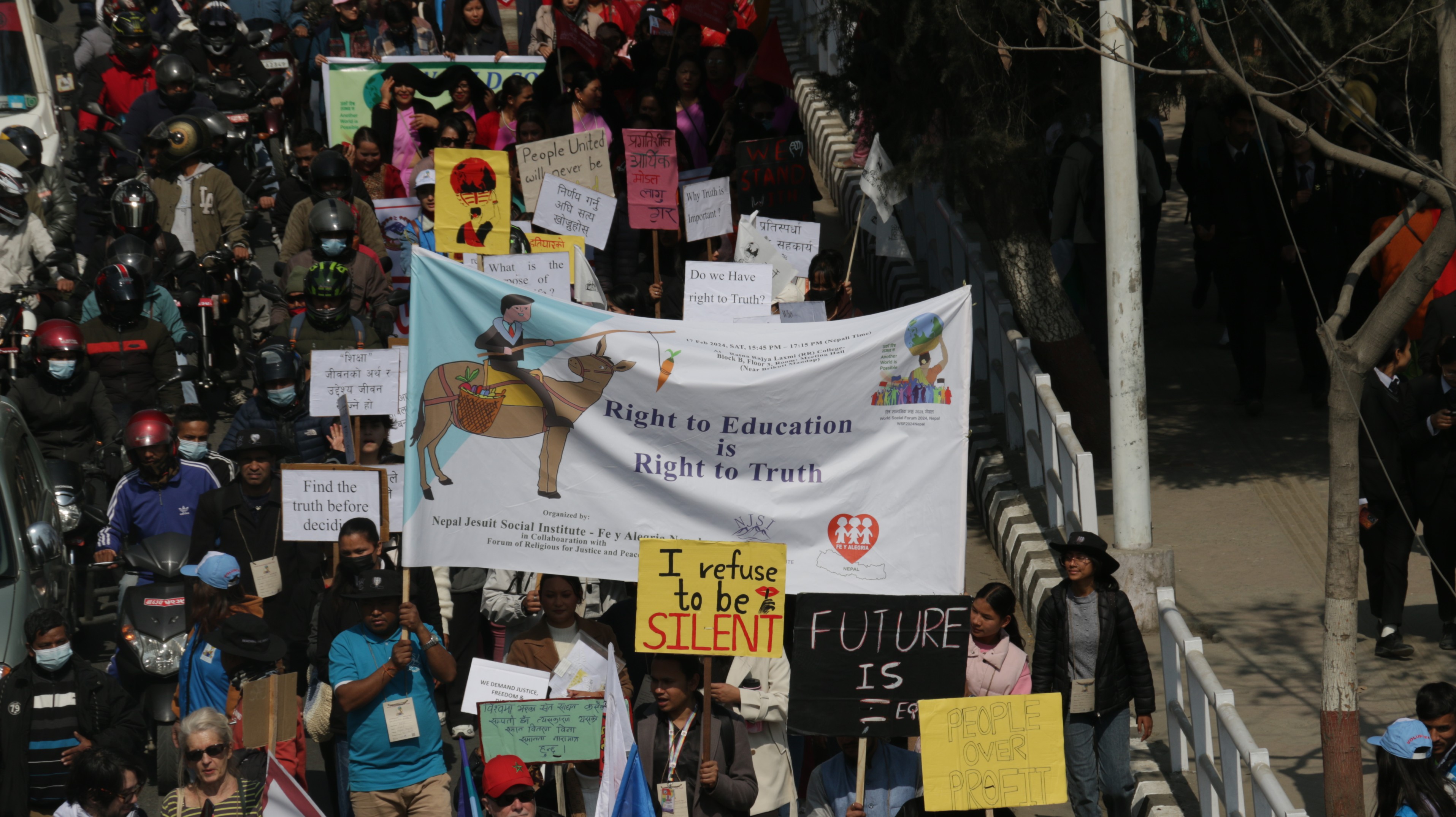 The World Social Forum 2024, was held in Kathmandu, Nepal for 5 days this year. Over 50,000 participants from more than 1400 organizations spanning 98 countries marked their attendance virtually and in person at various concurrent events, as reported by the Nepal Organizing Committee of the WSF 2024.
The World Social Forum 2024, was held in Kathmandu, Nepal for 5 days this year. Over 50,000 participants from more than 1400 organizations spanning 98 countries marked their attendance virtually and in person at various concurrent events, as reported by the Nepal Organizing Committee of the WSF 2024.
The program was from 15th to 19th Feb where assorted programs were scheduled, such as forums, assemblies, thematic Pannel discussions, cultural performances. Parallelly, we had International Tribunal on Evictions at St. Xavier’s College in which Nepal Jesuit Social Institute-Fe y Alegria Nepal played key role with the local organizing committee especially in arranging the logistics.
Nepal Jesuit Social Institute-Fe y Alegria Nepal participated in the march along with other organizations around the world, it was about 4km in which we raised our banners with the theme of “Right to Education is Right to Truth”. 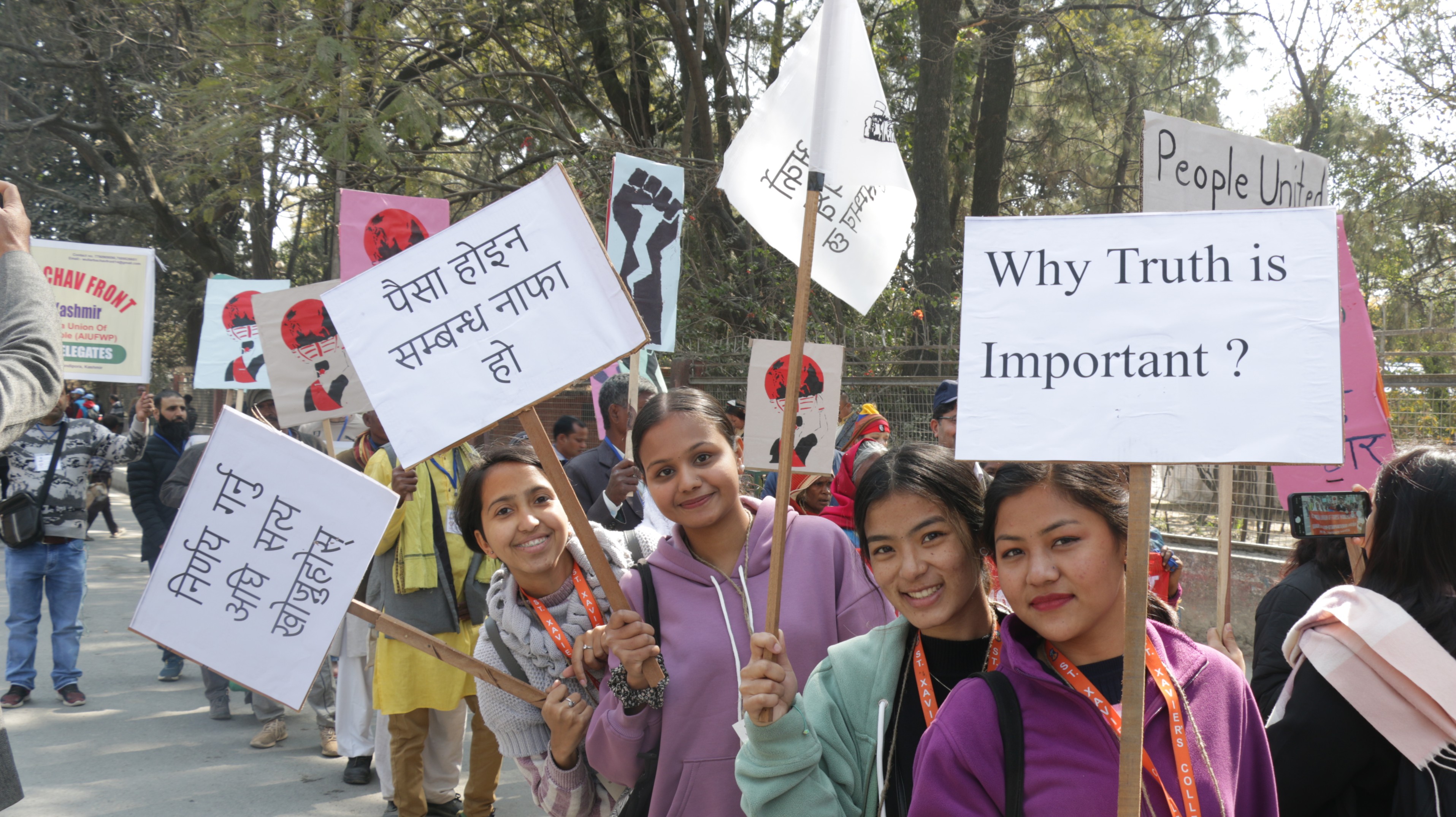
NJSI organized a thematic Pannel event on “Right to Education is Right to truth” at Ratna Rjaya Campus, Kathmandu on 17th Feb. It was almost three hrs. program where 6 panelists put their ideas respectively. Dr. Radha Paudel who was the winner of Madan Puraskar for the best seller “Kalangama Hamala”, Mr. Gyanmani Nepal, first “Integrity Idol” of Nepal, ex district Education officer of Panchthar district and presently the chief administrative officer of Dullu Municipality, Sr. Dorothy Fernandes, National Convener of the forum of Religious for Justice and Peace, she has received Neelkanth Samman award from the Government of India for upholding human rights for the Marginalized, Mrs. Saluja Chand, Vice Principal of St. Xavier’s College, Mr. M. C Pereira, pioneer of Permaculture in Nepal, worked over 20 years in Cambodia and Afghanistan and Fr. Roy Sebastain, director of Nepal Jesuit Social Institute- Fe y Alegria Nepal who presented the Theme and published the booklet which explained he theme.
The theme “Right to Education is Right to Truth” is centered around the following points.
“Students are not to be treated as puppets programmed to behave according to anybody’s interests, they are evolving conscious beings. It is their right to have the conducive environment and correct guidance to discover themselves and the objective Truth about the meaning and Purpose of human existence in order for them to make the correct decisions for their lives that will lead to the sustainability of humanity itself.”
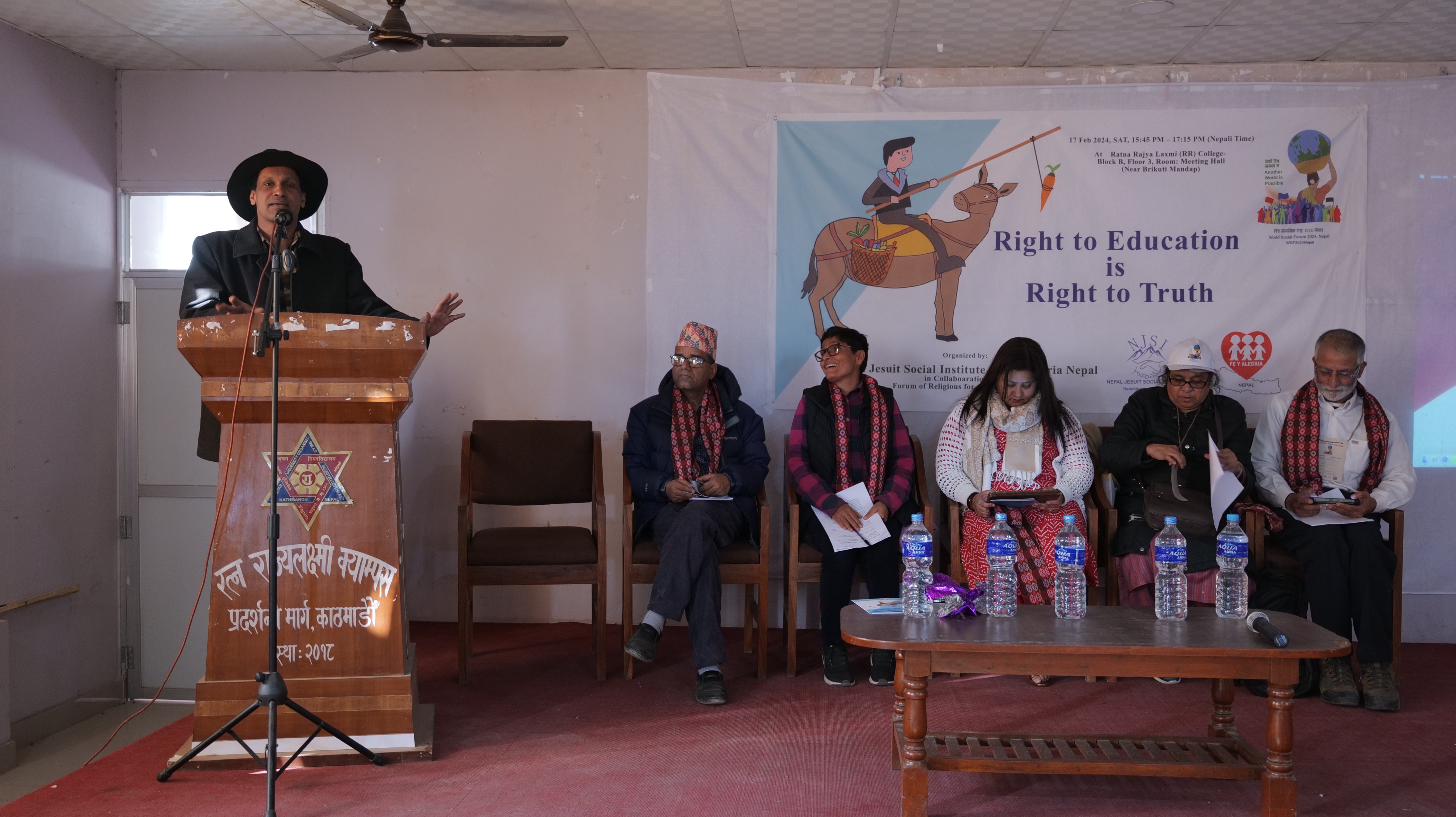 Every child is born with Right to live and grow physically and mentally into a full human being.
Every child is born with Right to live and grow physically and mentally into a full human being.
The child has the right to develop his/her consciousness about the purpose and goal of human existence and should have the opportunity and the environment to discover oneself and his/her relationship with other human beings, Nature, and the Divine.
Discovering one ‘s true identity requires an open and free environment where one is not limited to the narrow one-sided world view of only one particular ideology.
Developing and giving a conducive and open environment for every growing child to discover the Truth is a fundamental right in opposition to the limitations set by the narrow, often one sided, world view of the fundamentalism of one particular culture, religion, politics or business.
Methods for developing Critical Thinking among students even from primary education in schools in order to enable them to find the truth before making decisions should be included in the school curriculum.
Even though everyone does not have access to every information and knowledge as it has to grow with age, maturity and psychological and emotional status, it has to be observed and mandated that if a particular awareness of a fact directly affects the life of an individual and determines his/her decisions for future, then he/she has the right to know that fact, along with the consequences of the decisions.
The sustainability of humanity depends on the formation of the minds of human beings whose decisions and actions have a participatory role in designing the future. Therefore, the formation of minds that takes place in schools and education system, should have the base on Objective Truth. 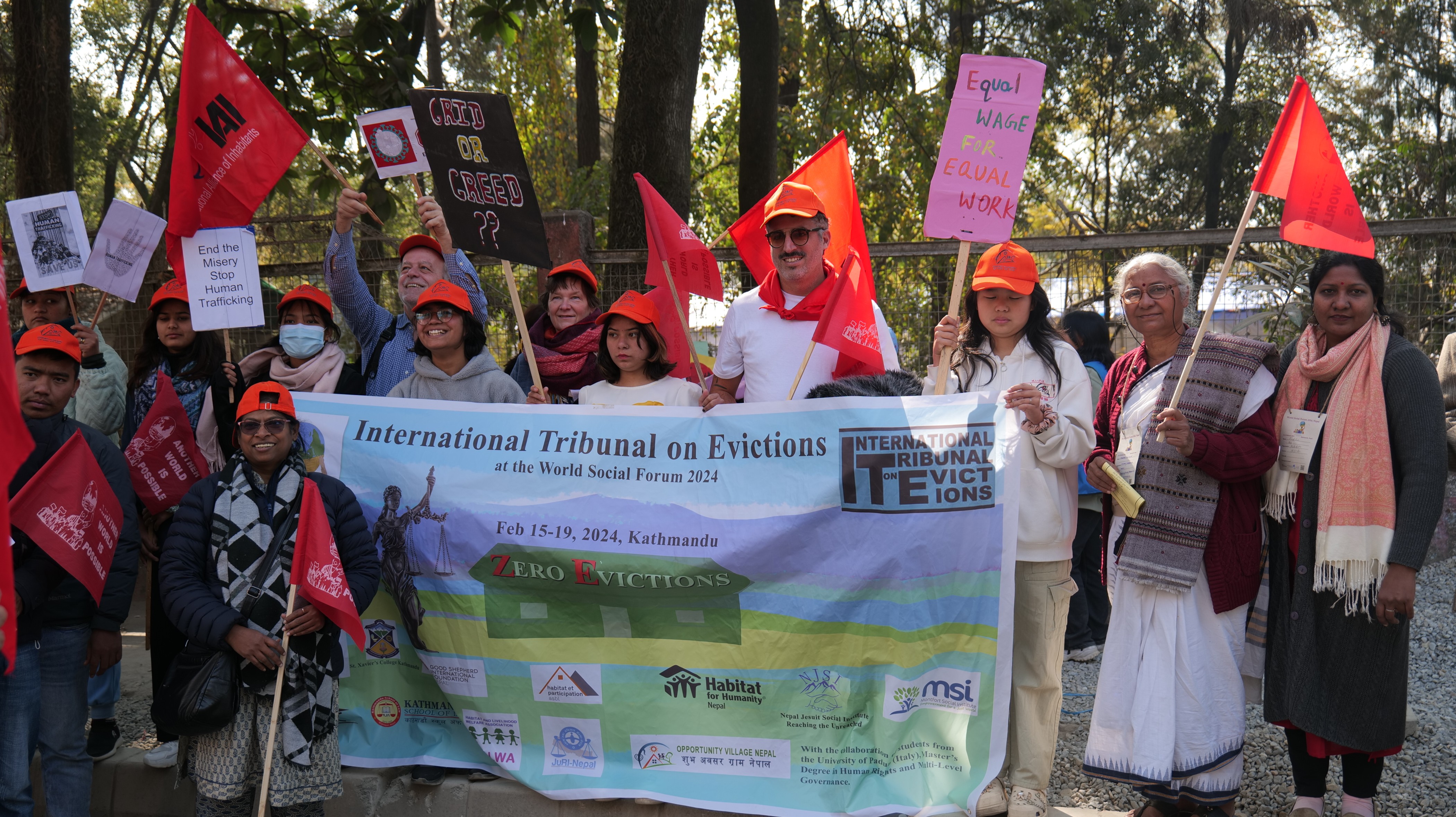
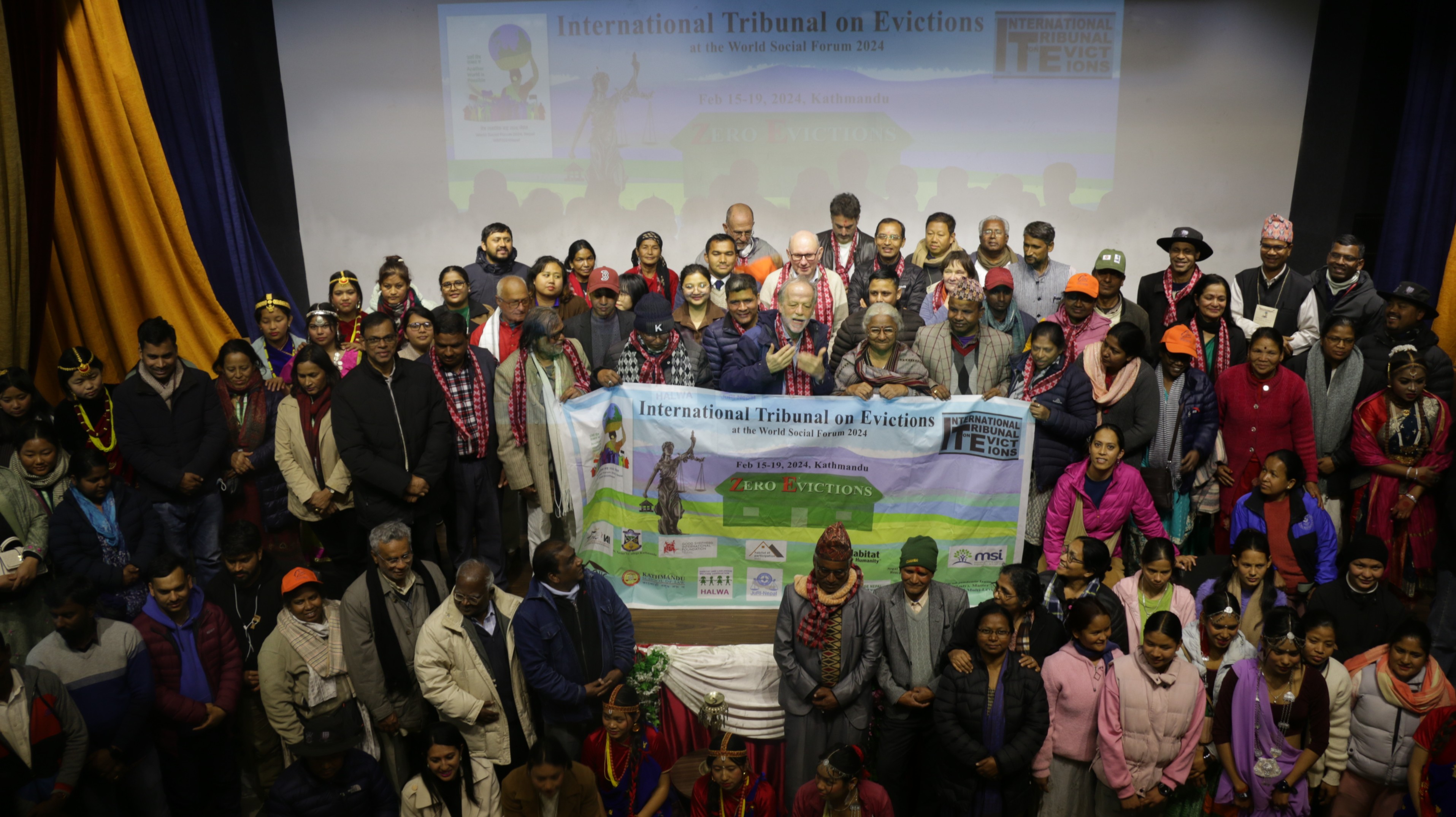
The International Tribunal on Evictions (ITE) is a peoples’ and opinion tribunal established in 2011 by the International Alliance of Inhabitants and civil society organizations for the World Zero Evictions Days to practically and interactively put forced evictions from around the world in the dock. The Tribunal relies on the expertise of an international Jury of well-respected and competent individuals, as well as on the International Covenant on Economic, Social and Cultural Rights (ICESCR) and other instruments of international law, in order to pass judgement on real cases of forced evictions that constitute human rights violations. The International Tribunal on Evictions (ITE) is a peoples’ and opinion tribunal established in 2011 by the International Alliance of Inhabitants and civil society organizations for the World Zero Evictions Days to practically and interactively put forced evictions from around the world in the dock. The Tribunal relies on the expertise of an international Jury of well-respected and competent individuals, as well as on the International Covenant on Economic, Social and Cultural Rights (ICESCR) and other instruments of international law, in order to pass judgement on real cases of forced evictions that constitute human rights violations.

